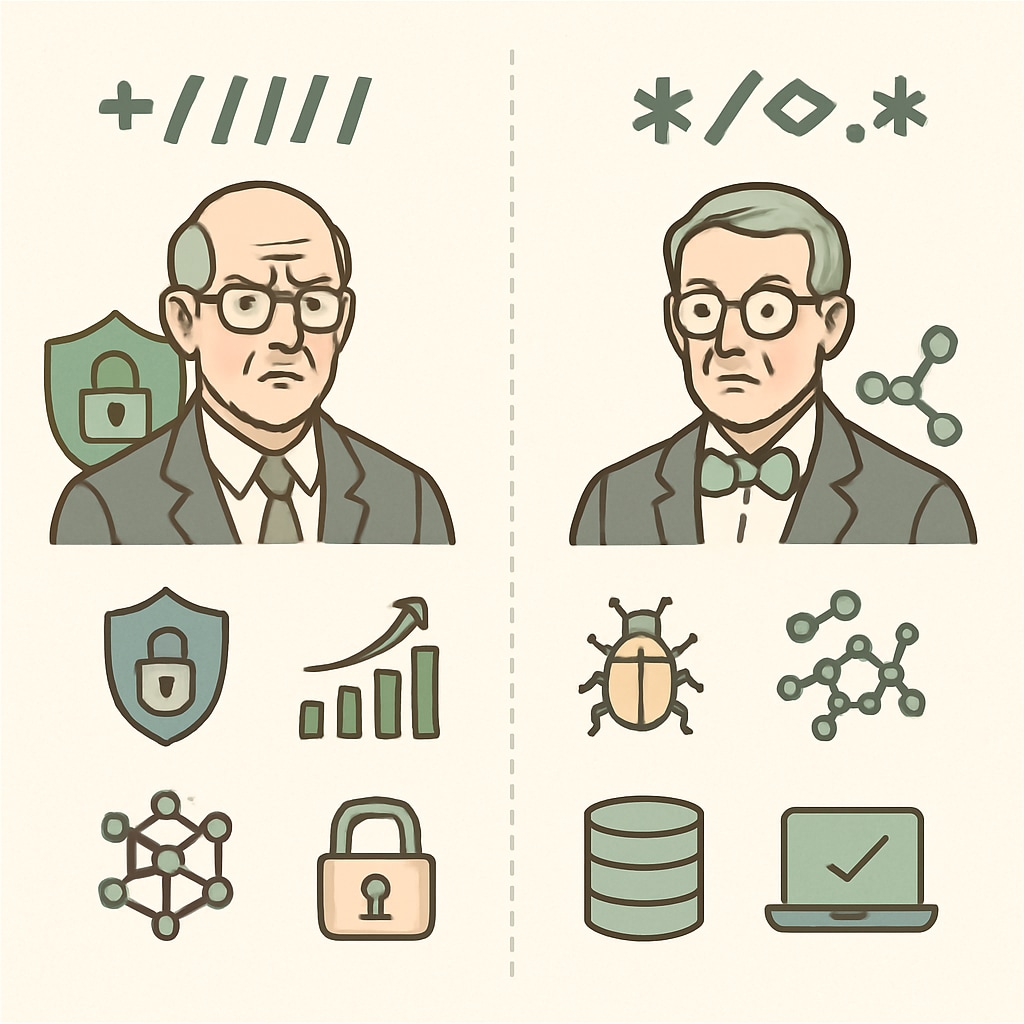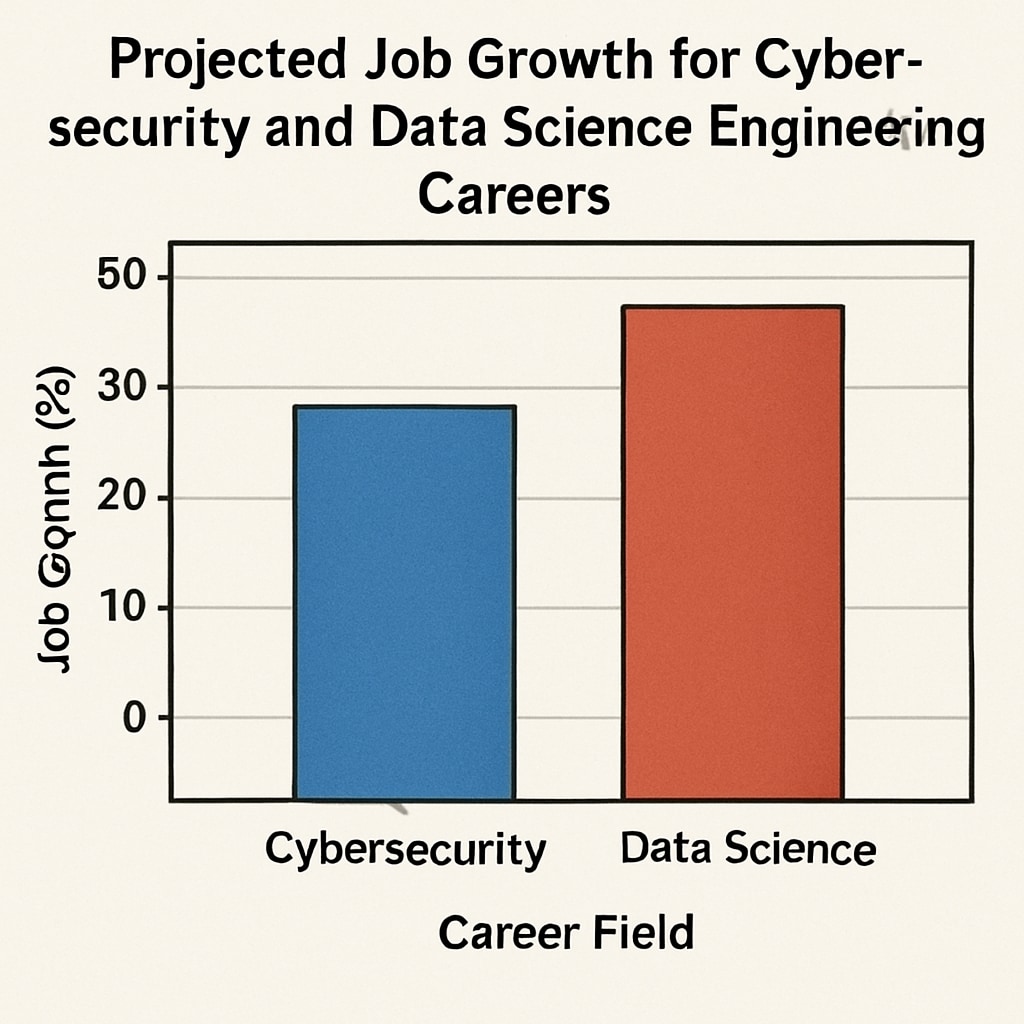In today’s rapidly advancing digital era, “cybersecurity, data science engineering, career choice” have become buzzwords in the tech industry. As technology evolves, these two fields are capturing the interest of students and parents alike, especially at the K12 level, where career aspirations often begin to take shape. This article offers a detailed comparison of these two dynamic professions, focusing on their educational pathways, career opportunities, and lifestyle implications. Whether you dream of protecting sensitive information or decoding complex data patterns, this guide is your starting point.
Understanding Cybersecurity and Data Science Engineering
Before diving into the specifics, it’s essential to understand what these two fields entail:
- Cybersecurity: This field focuses on protecting computer systems, networks, and data from cyber threats. Professionals in this domain work to secure digital assets against hackers, malware, and other types of attacks.
- Data Science Engineering: This discipline involves analyzing and interpreting massive datasets to extract valuable insights. Data scientists use advanced algorithms, machine learning models, and statistical tools to solve real-world problems.
While both fields leverage technology, their focus areas are distinct, making it crucial to evaluate which aligns better with your skills and interests.

Educational Pathways: Cybersecurity vs Data Science Engineering
The educational journey for these professions starts with foundational knowledge in mathematics, computer science, and programming. However, the paths diverge as students progress:
- Cybersecurity: Aspiring cybersecurity professionals typically study topics like network security, cryptography, ethical hacking, and risk management. Popular certifications, such as CompTIA Security+ or Certified Ethical Hacker (CEH), can enhance employability.
- Data Science Engineering: Students in this field delve into machine learning, big data analytics, and database management. Proficiency in programming languages such as Python or R is often critical, alongside statistical and analytical skills.
Both fields also offer a range of degree programs, from bachelor’s to master’s levels, and include online courses for flexible learning. Students should consider their learning preferences and career goals when choosing between these paths.
Career Prospects and Job Market Trends
Both cybersecurity and data science engineering offer promising career opportunities, but the demand and job roles vary:
- Cybersecurity: With the rise in cyber threats, roles such as Security Analyst, Penetration Tester, and Chief Information Security Officer (CISO) are in high demand. According to the U.S. Bureau of Labor Statistics, cybersecurity jobs are expected to grow by 35% from 2021 to 2031.
- Data Science Engineering: Data scientists play a pivotal role in industries like finance, healthcare, and marketing. Job titles include Data Analyst, Machine Learning Engineer, and AI Specialist. LinkedIn ranks data science as one of the most sought-after skills globally.
Notably, both fields offer lucrative salaries, with median annual wages often exceeding $100,000 in the United States.

Lifestyle and Work Environment
The work environments and daily routines in these fields also differ significantly:
- Cybersecurity: Professionals often work in high-pressure environments, responding to security breaches or implementing preventive measures. While the work can be stressful, it is highly rewarding for those who enjoy problem-solving and staying ahead of cybercriminals.
- Data Science Engineering: This field offers a more research-oriented atmosphere, with a focus on analyzing data and building predictive models. The work is generally structured, making it an excellent fit for those who enjoy deep analytical thinking.
Ultimately, lifestyle preferences, such as work-life balance and stress tolerance, should factor into the decision-making process.
Which Path is Right for You?
Choosing between cybersecurity and data science engineering depends on several factors:
- Interest: Do you enjoy protecting systems and solving security puzzles, or are you more drawn to uncovering insights from data?
- Skills: Evaluate your strengths—cybersecurity requires quick decision-making, while data science demands analytical rigor.
- Career Goals: Consider the industries you wish to work in and the type of job roles that excite you.
By assessing these aspects, you can make an informed choice that aligns with your aspirations.
Conclusion
In conclusion, “cybersecurity, data science engineering, career choice” represents two of the most exciting and impactful career paths in today’s digital landscape. Both fields offer unique opportunities for growth, innovation, and meaningful work. By understanding their differences in education, job roles, and lifestyle, K12 students and their families can take the first step toward a fulfilling career. Whether you’re securing networks or decoding datasets, the future is bright for tech-savvy professionals.
Explore more: For additional information, visit Cybersecurity on Wikipedia or Data Science on Britannica.


